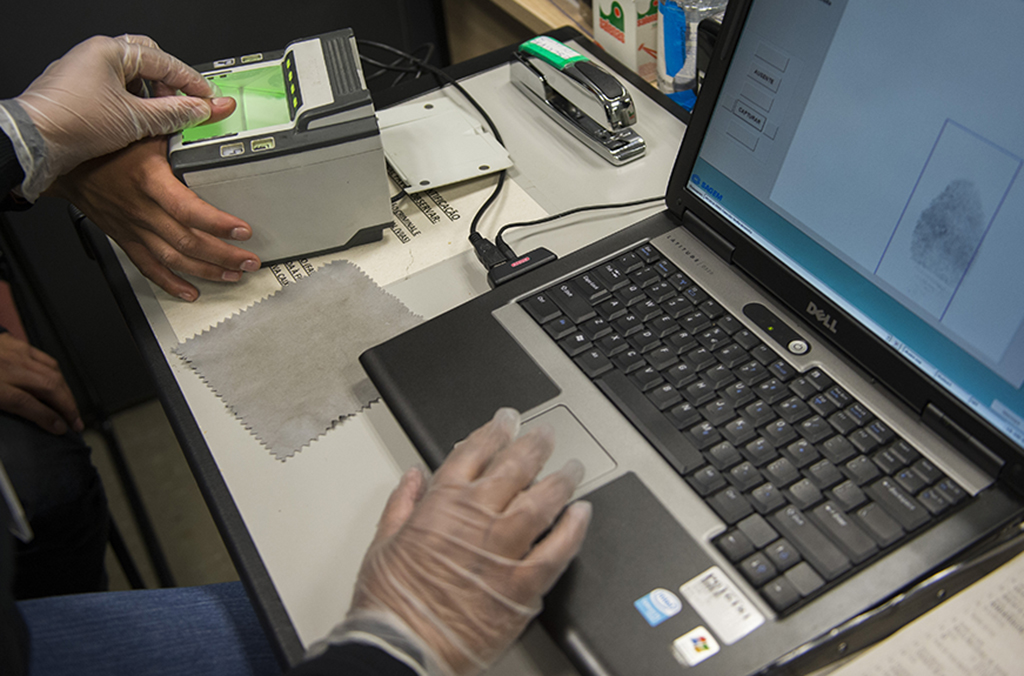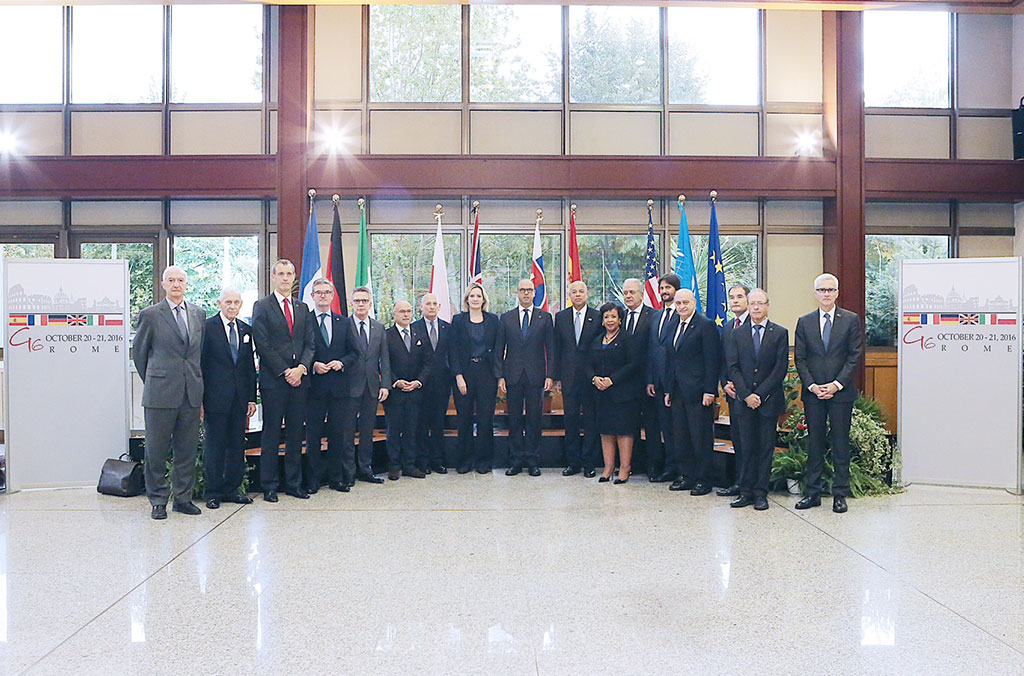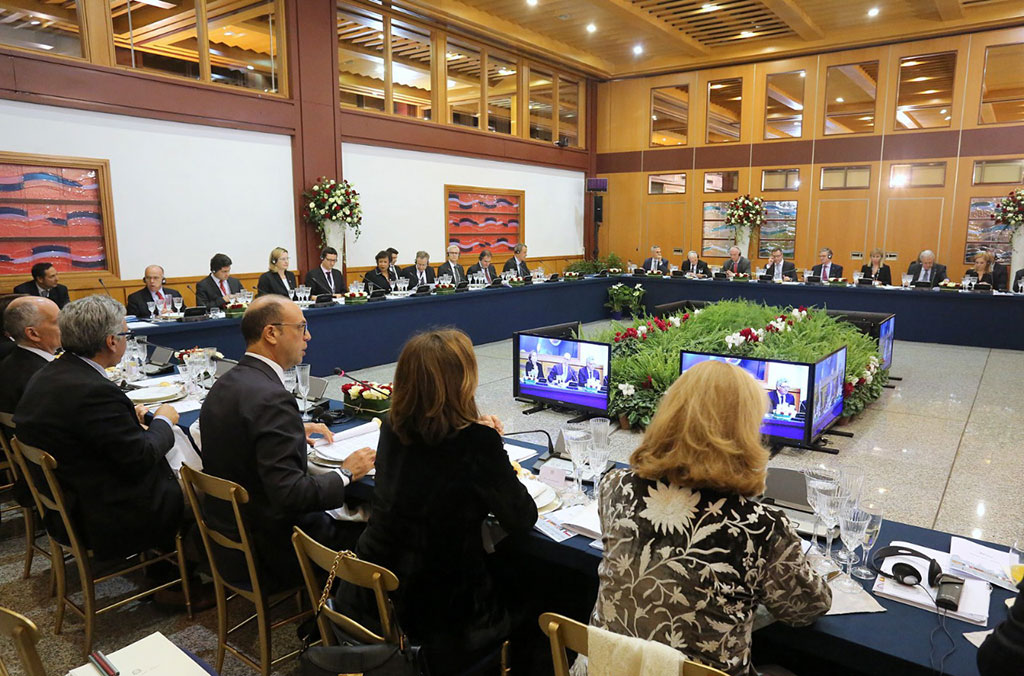ROME, Italy – INTERPOL Secretary General Jürgen Stock has said greater coordination is essential for the global community to effectively respond to the threat of returning foreign terrorist fighters (FTFs).
With increased concerns of the potential displacement of FTFs due to increased military pressure on ISIL, including the ongoing offensive in Mosul, the INTERPOL Chief is warning that five years after the start of the Syrian conflict, dangerous gaps still remain in global screening efforts.
Attending the G6 Interior Ministers meeting in Rome, Mr Stock said with estimates placing up to 15,000 fighters still within the conflict zones, a more complex picture was emerging.
“The concern is what these foreign terrorist fighters will do with the skills acquired in battle and the networks which facilitated their recruitment when they leave the conflict zones,” said Secretary General Stock.
“We are moving away from the original ISIL foreign terrorist fighter landscape, with flows now potentially heading towards multiple conflict zones as well as individuals returning to their countries of origin,” added Mr Stock, highlighting that FTFs of more than 80 nationalities have been reported to INTERPOL.
“We are facing a much less predictable model in terms of terrorist travel, and we need to apply the lessons learned from attacks by individuals such as Mehdi Nemmouche in implementing a global response,” added Mr Stock.
After fighting in Syria for a year, Nemmouche travelled via Southeast Asia before returning to Europe to carry out his deadly attack at the Jewish Museum in Brussels, killing four people.
“For INTERPOL, here lies perhaps the greatest gap in international efforts against this threat,” said Mr Stock. “By sharing information globally via INTERPOL, countries extend their national security perimeter, potentially enabling the identification of a threat far away from their own border, or even closer to home,” he added.
With battlefields holding valuable intelligence for law enforcement abroad, in July INTERPOL became a partner within the Global Coalition to Counter ISIL in support of its non-military efforts to stem the flow of foreign terrorist fighters.
Earlier this year information on foreign terrorist fighter entities recovered from the conflict zones was provided to INTERPOL via its National Central Bureau in Washington.
INTERPOL’s sharing of this data with its member countries has already resulted in one European country identifying and arresting five returnees as well as flagging four additional individuals, including recruiters and facilitators.
“We stand at a critical stage in our efforts against the terrorist threat,” said Mr Stock. “International action can and will bring concrete results, but we must be systematic and consistent. We must close the loopholes being exploited by terrorists at the national, regional and international levels if we are to succeed.
“We don’t need new information sharing systems, which could actually create more challenges to cooperation. We just need to use the ones already in existence to their full potential,” concluded the INTERPOL Chief.






